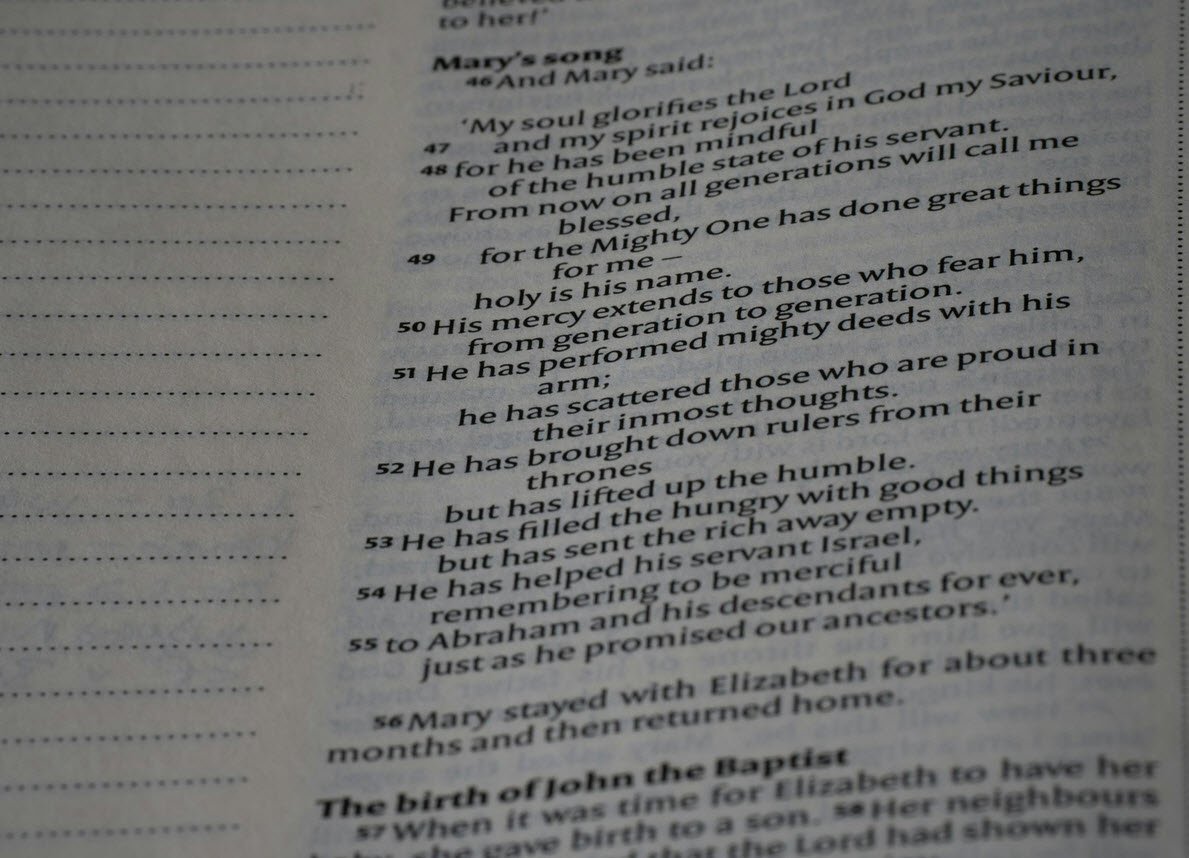
Everyone has three vocabularies in every language he or she speaks: a reading vocabulary, a listening vocabulary, and a speaking vocabulary.
The 80 questions in this practice test (set 1) will help you assess your vocabulary skills.
After you complete the test, look up the definitions for the words on your list. It might be a good idea to write down the definition beside the word.
When you are finished, check the answer key carefully to assess your results. Then, you can determine how much time you need to spend to increase your vocabulary power.
Also Read:
Directions: For questions 1 through 20, choose the word that best fills in the blank.
1. George developed an _____________ plan to earn the extra money he needed to start his own business.
a. elitist
b. irrational
c. aloof
d. ingenious
2. We knew everything about the newest member of our group; she was very _____________.
a. expressive
b. secretive
c. reserved
d. artistic
3. I have always liked your positive attitude; it has _____________ affected our working relationship.
a. adversely
b. shamelessly
c. candidly
d. favorably
4. Dog-sitting for Buddy is easy to do; he is a _____________ and obedient pet.
a. delectable
b. commonplace
c. meddlesome
d. docile
5. The directions to the new office were _____________, and I had no trouble finding it in time for work.
a. priceless
b. arduous
c. explicit
d. embodied
6. If your drinking water is not _____________, it could cause serious health problems.
a. valid
b. quenchable
c. impure
d. potable
7. The new board member said she would vote in favor of the proposed city ordinance because it _____________ many of the points discussed earlier this year.
a. encompassed
b. released
c. reminisced
d. dispersed
8. Rachel _____________ a plan to become a millionaire by age 30.
a. conformed
b. devised
c. decreased
d. condoned
9. Wanting to make a good impression, he found himself in a _____________ about the right tie to wear to the business meeting.
a. prestige
b. redundancy
c. quandary
d. deficit
10. Because Mark needed to pass the exam, he made studying a _____________ over watching his favorite television show.
a. priority
b. conformity
c. perplexity
d. concept
11. Hoping to win a prize for the best costume, Tim dressed _____________ with bright red suspenders and a purple tie.
a. eminently
b. virtuously
c. conspicuously
d. obscurely
12. Muhammad fell asleep during the movie because it had a very _____________ plot.
a. monotonous
b. torrid
c. ample
d. vital
13. To get the promotion she wanted, she _____________ that it was best to go back to school to get her master’s degree as soon as she could.
a. supposed
b. surmised
c. presumed
d. resolved
14. The narrator’s description was an accurate _____________ of a true southern family.
a. portrayal
b. council
c. disguise
d. reunion
15. Due to slippery road conditions and the slope of the narrow, winding highway, the car _____________ down the steep mountainous road.
a. dissented
b. ventilated
c. careened
d. agitated
16. The fire alarm _____________ beckoned the volunteer firefighters of the small community to come to action.
a. approvingly
b. significantly
c. symbolically
d. audibly
17. After running an early 5K race, Simone _____________ devoured a hearty breakfast.
a. dynamically
b. voraciously
c. generously
d. beneficially
18. The car rental company considered the scratches on the driver’s door to be caused by a minor _____________.
a. mishap
b. attraction
c. reflex
d. duplicate
19. The participants in the road rally agreed to _____________ near the village commons at 5:00.
a. rendezvous
b. scatter
c. filibuster
d. disperse
20. Understanding the world economic conditions, the recent graduates spoke _____________ about job prospects for the future.
a. warily
b. luxuriously
c. measurably
d. narrowly
Directions: For questions 21 through 45, choose the best definition for the word in italics and in underline.
21. Aswad has such a caustic sense of humor that most people find his jokes upsetting rather than humorous.
Caustic means
a. bitingly sarcastic.
b. relentlessly funny.
c. refreshingly honest.
d. original, cutting edge.
22. Sandra is truly an enigma; although she’s lived here for years and everyone knows her, no one seems to know anything about who she is or where she came from.
Enigma means
a. stranger.
b. enemy.
c. newcomer.
d. mystery.
23. Exorbitant means
a. belonging to a group.
b. to orbit.
c. in a new location.
d. far beyond what is normal or reasonable; very high.
24. Denunciation means
a. to denounce or openly condemn.
b. critical, of or like a condemnation.
c. one who denounces or openly condemns another.
d. the act of denouncing or openly condemning.
25. Metamorphosis means
a. to transform.
b. one who has changed.
c. a transformation.
d. tending to change frequently.
26. To reconcile means
a. to reestablish a close relationship between.
b. to move away from.
c. to undermine.
d. to surpass, outdo.
27. Didactic means
a. a teacher or instructor.
b. intended to instruct, moralizing.
c. to preach, moralize.
d. the process of instructing.
28. Unilateral means
a. to multiply.
b. understated.
c. literal.
d. one-sided.
29. Subordinate means
a. under someone else’s authority or control.
b. organized according to rank, hierarchical.
c. something ordinary or average, without distinction.
d. repeated frequently to aid memorization.
30. Incisive means
a. insight.
b. worthy of consideration.
c. penetrating, biting in nature.
d. to act forcefully.
31. Intermittent means
a. badly handled.
b. occurring at intervals between two times or points.
c. greatly varied.
d. a number between one and ten.
32. Miscreant means
a. someone who is unconventional.
b. someone who lacks creativity.
c. a very naïve person.
d. an evil person, villain.
33. Perennial means
a. lasting a very long time, constant.
b. one who plants a garden.
c. to establish contact.
d. the process of encoding a message.
34. Imperialism means
a. one who acquires items from other empires.
b. an empire built by acquiring other territories.
c. relating to the acquisition of territories.
d. the policy of extending an empire by acquiring other territories.
35. To abrogate is to
a. abolish, revoke.
b. fight, quarrel.
c. rest quietly.
d. know intimately.
36. An acrimonious relationship is one that
a. has existed for a long time.
b. is extremely friendly.
c. exists only in the imagination.
d. is bitter or resentful.
37. A vicarious action is one that
a. is experienced through the life or action of another.
b. enables a guilty person to be set free.
c. surrenders the rights of others.
d. has a pleasing and lasting effect on others.
38. If there is amity between two nations, there is
a. war.
b. equality.
c. bitterness.
d. peace.
39. An edict is
a. a place to rest.
b. a place to stop.
c. the act of seeing or shining.
d. a formal proclamation or command.
40. A magnanimous person is
a. highly noble, generous.
b. extremely talkative.
c. given to wordy, rambling speech.
d. a wanderer, hobo.
41. To acquiesce is to
a. call attention to.
b. speak in a whisper.
c. mask the truth.
d. give in to, comply with another’s wishes.
42. A pugnacious person is best described as
a. nosy.
b. combative.
c. talented.
d. ruthless.
43. Something that is erratic
a. moves at a constant, steady pace.
b. is properly ordered; appropriate, in its proper place.
c. seems to be harmless but is actually very dangerous.
d. is unpredictable, meandering, straying from the norm.
44. To feel fervor is to feel
a. carefree, light-hearted.
b. burdened, as with guilt.
c. intense, fiery emotion.
d. calmness, peace.
45. A loquacious person
a. has good intentions, but often ends up doing things that end up hurting others.
b. tends to talk a great deal.
c. often has difficulty finding things.
d. tends to like everyone; is not discerning.
Directions: For questions 46 through 59, choose the correct word in the parentheses to complete the sentence.
46. The pond was (teaming/teeming) with tadpoles after the frog eggs hatched.
47. Anita’s (faux/foe) mink coat looked so real that a group of teenagers accused her of cruelty to animals.
48. Jackson may act as if he is totally (disinterested/uninterested) in you, but believe me, he is very anxious to learn more about you.
49. I am having the jewelry I inherited from my grandmother (appraised/apprised) to find out how much it is worth.
50. Helen entered the room right on (cue/queue).
51. You are sure to be (censored/censured/sensored) if you make such wild accusations about your colleagues.
52. I have always admired Don’s (meddle/mettle); he seems to be afraid of no one and nothing.
53. A (hoard/horde) of angry parents attended the school board meeting and demanded that the superintendent step down.
54. The documentary really (peaked/peeked/piqued) my interest in the Civil War.
55. With just a few hours to go before the big ceremony, Adele rushed around (prescribing/proscribing) orders left and right.
56. Huang decided to (raise/raze) the stakes by increasing the reward.
57. Although Oscar’s story sounds (incredible/incredulous), I think he’s telling the truth.
58. Jing-Mae gave her (ascent/assent) to the proposal, even though she did not entirely agree with the plan.
59. This looks like a (decent/descent/dissent) restaurant; let’s eat here.
Directions: In questions 60 through 63, identify the correct synonym by looking for word roots, prefixes, or suffixes. Choose the word that means the same or about the same as the italicized/Underlined word.
60. a partial report
a. identifiable
b. incomplete
c. visible
d. enhanced
61. a substantial report
a. inconclusive
b. weighty
c. proven
d. alleged
62. corroborate the statement
a. confirm
b. negate
c. deny
d. challenge
63. manufactured goods
a. reverted
b. transgressed
c. regressed
d. processed
Directions: In questions 64 through 67, choose the word that means the opposite of the italicized/underlined word.
64. prompt payment
a. punctual
b. slack
c. tardy
d. regular
65. rain delay
a. slow
b. hasten
c. pause
d. desist
66. moderate work flow
a. original
b. average
c. final
d. excessive
67. initial impression
a. first
b. crisis
c. final
d. right
Directions: For questions 68 through 72, choose the word whose definition best matches the description.
68. an innovative play that uses an experimental style
a. apropos
b. mélange
c. avant-garde
d. imbroglio
69. the complete works of Shakespeare
a. blasé
b. milieu
c. zeitgeist
d. oeuvre
70. a meeting at 7:00 at La Grange restaurant
a. par excellence
b. rendezvous
c. savoir faire
d. façade
71. “work like a dog,” “sleep like a baby,” and other such overused sayings
a. cliché
b. bourgeois
c. insouciant
d. gauche
72. an avid sports fan
a. gestalt
b. hiatus
c. mélange
d. aficionado
Directions: For questions 73 and 74, choose the word that best describes the section of the word in underline type.
73. proactive
a. after
b. forward
c. toward
d. behind
74. inscribe
a. confine
b. see
c. perform
d. write
75. A synonym for vast is
a. attentive.
b. immense.
c. steady.
d. slight.
76. A synonym for enthusiastic is
a. adamant.
b. available.
c. cheerful.
d. eager.
77. A synonym for adequate is
a. sufficient.
b. mediocre.
c. proficient.
d. average.
78. A synonym for comply is
a. subdue.
b. entertain.
c. flatter.
d. obey.
79. An antonym for uniform is
a. dissembling.
b. diverse.
c. bizarre.
d. slovenly.
80. A synonym for ecstatic is
a. inconsistent.
b. positive.
c. wild.
d. thrilled.
Answers:
- d. Ingenious means marked by originality, resourcefulness, and cleverness in conception.
- a. An expressive person would be one who is open or emphatic when revealing opinions or feelings.
- d. Favorably means gracious, kindly, or obliging.
- d. Docile means easily led or managed.
- c. Explicit means clearly defined.
- d. Potable means fit for drinking.
- a. Encompassed in this context means included.
- b. Devised means to form—in the mind—new combinations or applications of ideas or principles; to plan to obtain or bring about.
- c. Quandary means a state of perplexity or doubt.
- a. Priority means the right to receive attention before others.
- c. Conspicuously means obvious to the eye or mind; attracting attention.
- a. Monotonous means having a tedious sameness.
- d. Resolved means having reached a firm decision about something.
- a. Portrayal means a representation or portrait.
- c. Careen means to rush headlong or carelessly; to lurch or swerve while in motion.
- d. Audibly means heard or the manner of being heard.
- b. Voraciously means having a huge appetite; ravenously.
- a. A mishap is an unfortunate accident.
- a. A rendezvous is a meeting or assembly that is by appointment or arrangement.
- a. Warily is a manner marked by keen caution, cunning, and watchful prudence.
- a. Caustic means bitingly sarcastic, cutting; able to burn or dissolve by chemical action. The main context clue is that people find Aswad’s jokes upsetting rather than humorous; thus choice a is the only option that makes sense.
- d. Enigma means something that is puzzling or difficult to understand; a baffling problem or riddle. The context tells you that people know who Sandra is, but no one knows anything about her; thus, she remains a mystery.
- d. The prefix ex- means out, out of, away from. Exorbitant means greatly exceeding (far away from) the bounds of what is normal or reasonable.
- d. The noun suffix -tion means the act or state of. Denunciation means the act of denouncing, especially in public; to openly condemn or accuse of evil.
- c. The noun suffix -sis means the process of. Metamorphosis means a transformation, a marked change of form, character, or function. Choices b and c are both nouns, but for choice b to be correct, it would require the suffix -ist.
- a. The prefix re- means back, again. To reconcile means to reestablish a close relationship between, to bring back to harmony.
- b. The adjective suffix -ic means pertaining or relating to, having the quality of. Didactic means intended to instruct; tending to be excessively instructive or moralizing. Only choice b defines a quality.
- d. The prefix uni- means one. Unilateral means one-sided. Notice also the adjective suffix -al, meaning action or process.
- a. The prefix sub- means under, beneath, below. The adjective subordinate means (1) of a lower or inferior class or rank; secondary; (2) subject to the authority or control of another. As a noun it means one that is subordinate to another, and as a verb (notice the -ate suffix) it means (1) to put in a lower or inferior rank or class; (2) to make subservient; subdue.
- c. The adjective suffix -ive means having the nature of. Incisive means penetrating and clear; sharp, acute, biting.
- b. The prefix inter- means between or among. Intermittent means occurring at intervals, not continuous; periodic, alternate.
- d. The prefix mis- means bad, evil, wrong. Miscreant means a villain, criminal; an evil person.
- a. The adjective suffix -ial means having the quality of, related to, suitable for. Perennial means lasting an indefinitely long time, forever; constantly recurring, happening again and again or year after year. Choice a is the only adjective definition.
- d. The noun suffix -ism means state or doctrine of. Imperialism means the policy of extending rule of a nation or empire by acquiring other territories.
- a. The root rog means to ask. The prefix ab- means off, away from, away, down; the suffix -ate means to make, cause to be. To abrogate means to abolish, do away with, formally revoke.
- d. The root ac/acr means sharp, bitter. The adjective suffix -ous means having the quality of or relating to. Acrimonious means bitter and sharp in language or tone.
- a. The root vi means life. The adjective suffix -ous means having the quality of or relating to. Vicarious means felt through imaging what another has experienced; acting or suffering for another.
- d. The root am means love. The noun suffix -ity means state of being. Amity means friendship; a state of friendly or peaceful relations.
- d. The root dic/dict/dit means to say, tell, use words. An edict is an official order or decree; a formal proclamation or command issued by someone in authority.
- a. The root mag/maj/max means big. The adjective suffix -ous means having the quality of or relating to. Magnanimous means very noble and generous; understanding and forgiving of others.
- d. The root qui means quiet. To acquiesce means to comply, give in, consent without protest—thereby “quieting” the other to whom one gives in.
- b. The root pug means to fight. The adjective suffix -ous means having the quality of or relating to. Pugnacious means quarrelsome, combative, inclined to fight.
- d. The root err means to wander. The adjective suffix -ic means pertaining or relating to, having the quality of. Erratic means moving or behaving in an irregular, uneven, or inconsistent manner; deviating (wandering) from the normal or typical course of action, opinion, etc.
- c. The root ferv means to boil, bubble, burn. The suffix -or means a condition or activity. Fervor means zeal, ardor, intense emotion.
- b. The root loc/log/loqu means word, speech. The adjective suffix -ous means having the quality of or relating to. Loquacious means very talkative, garrulous.
- teeming. To teem means to be full of, to be present in large numbers.
- faux. Faux means artificial, fake; not genuine or real.
- uninterested. Uninterested means not interested, having no care or interest in knowing.
- appraised. To appraise means to evaluate, to establish value or estimate the worth of.
- cue. A cue is a signal, such as a word or action, given to prompt or remind someone of something; a hint or suggestion.
- censured. To censure is to criticize strongly, rebuke, condemn.
- mettle. Mettle means courage, fortitude, spirit.
- horde. A horde is a large group or crowd, a vast multitude.
- piqued. To pique is (1) to cause annoyance or irritation, to vex; (2) to provoke or arouse. This sentence uses the second meaning.
- prescribing. To prescribe is to issue commands, order something to be done, dictate. It also means to order a medicine or other treatment.
- raise. To raise is to lift, make higher; to increase in size, quantity, intensity, degree, or strength.
- incredible. Incredible means implausible, beyond belief; astonishing.
- assent. Assent means agreement, concurrence, consent.
- decent. Decent means (1) conforming to what is socially or morally suitable or correct; (2) meeting acceptable standards, sufficient, adequate. This sentence uses the second meaning.
- b. Partial means incomplete. The root of the word here is part. A partial report is only part of the whole.
- b. A substantial report is extensive. The key part of the word substantial is substance. Substance means something that has significance.
- a. To corroborate is confirm. Notice the prefix co-, which means with or together. Some related words are cooperate, coworker, and collide. Corroboration means that one statement fits with another.
- d. Manufactured goods are those that are made or processed from raw material into a finished product. Facer—the word root—means to make or do.
- c. The key here is to remember not to choose the synonym. Context clues are important as well. You may have seen this sentence on one of your bills: Prompt payment is appreciated. Prompt means punctual; tardy means late.
- b. A delay is a postponement in time. If you rely on context clues to help you answer this question, you may be reminded of a rain delay at a sporting event. To delay is to slow; to hasten is to hurry.
- d. Something that is moderate is not subject to extremes. Moderate means average; excessive means extreme.
- c. An initial impression is one that comes first. Initial means first; final means last.
- c. Avant-garde means using or favoring an ultramodern or experimental style; innovative, cutting-edge, especially in the arts or literature.
- d. Oeuvre means (1) a work of art; (2) the total lifework of a writer, artist, composer, etc.
- b. The noun rendezvous means (1) a prearranged meeting at a certain time and place; (2) a place where people meet, especially a popular gathering place. The verb rendezvous means to bring or come together at a certain place, to meet at a rendezvous.
- a. A cliché is a trite or overused expression or idea.
- d. An aficionado is a fan or devotee, especially of a sport or pastime.
- b. The prefix pro means for. If someone is proactive, they are forward thinking and take action or initiative to make things happen.
- d. The word root scribe means to write; to engrave on a surface.
- b. Vast means very great in size; immense.
- d. Enthusiastic means eager.
- a. If something is adequate, it is sufficient.
- d. Comply is synonymous with obey.
- b. To be uniform is be consistent or the same as others; to be diverse is to have variety.
- d. A person who is ecstatic is thrilled.








